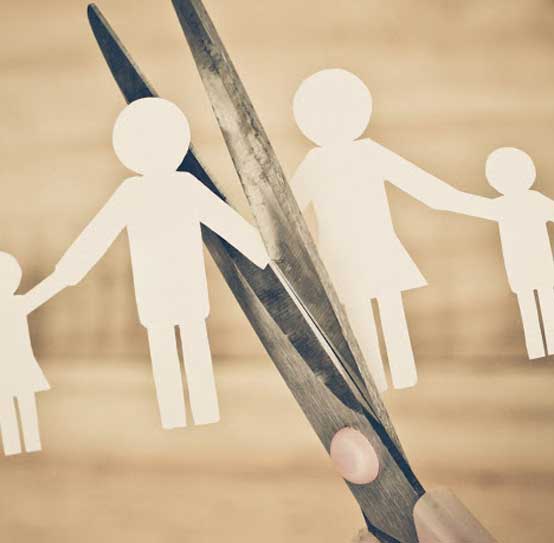What About the Kids?

- Keep it simple. Your children do not need to know about every aspect of your divorce. While it is important to be honest with your kids, it is not necessary to discuss adult matters with them. Spare them the details. Most kids are unlikely to fully grasp or comprehend your marital issues.
- Don’t make promises you can’t keep. As parents, we want to promise our kids the world. Choose your words wisely when discussing the future with your kids. Parents often tend to make promises to allay their children’s worries and fears. Don’t promise them a better life, a new home, more toys, special activities, etc unless you know for sure you can deliver. If your promises fall through, you risk losing their trust. And now, more than ever, they need to know they can rely on you and your word.
- Encourage children to talk about their feelings. Ask your children how they are feeling often. Don’t assume everything is okay just because you may not see any outward signs of distress. Help them to verbalize their feelings, but don’t put words in their mouths. For example, instead of saying, “Do you feel mad?” ask them to describe what they’re feeling and encourage them to express those feelings in healthy, creative ways. For example, a younger child could draw a picture while an older child could be encouraged to write their feelings in a journal.
- Maintain consistency in their everyday lives. With all the changes going on in your children’s lives, try to maintain their normal routines and schedules. Even if you have to relocate, adhere to regular meal times and bed times. Children find comfort in familiarity. Encourage them to remain involved in all their extracurricular activities and hobbies. Continue with your usual celebrations for special occasions. Stick to your typical parenting style and disciplinary tactics. No matter how chaotic your life may now seem, focus on maintaining a solid foundation for your kids.
- Create new rituals. While children crave familiarity to feel safe and secure, it’s also fun to create some new rituals together that can help define your new situation. Here are a few ideas: invent a special secret handshake; share a joke every night at the dinner table; create a unique family dessert made from everyone’s favorite cookies and ice cream flavors; hold a family dance night, skit night or game night once a month; say good morning in a different language every day. Being silly and fun and creative lightens the mood in the household and introduces new fond memories to cherish.
- Reassure them of your unconditional love. Children may feel abandoned by the parent who moved out, or in their mind “left” the family. These feelings may lead to issues pertaining to separation anxiety. This is even true for older children whose notion of permanence has been somewhat shattered. Reassure your children that they are loved by both their parents. Make sure your kids know that they are your top priority and that you will never leave them. If they are demanding a little extra attention right now, give it to them. Saying you love them is not enough, show them! Children also tend to blame themselves for their parents’ divorce. “If I was a better boy, daddy wouldn’t have left.” “If I had put my toys away, mommy wouldn’t have yelled at daddy so much.” While irrational to adults, these beliefs are very real to children. Your kids need to know that they have done nothing wrong and that their actions did not lead to the current situation.
- Answer their questions. Children can ask some pretty tough questions. Try to answer them honestly and age appropriately. Create an environment where your children feel comfortable asking you anything. Take the time to really listen to what they are asking you and take the time to consider your response carefully. If you don’t have a clear cut answer for them, it’s okay to say, “I don’t know.” If the questions pertain to their other parent, refrain from making negative, hurtful or disrespectful comments.
- Ask them what they want, need and think. What we assume our kids want, need, and think might actually be very different from what is really going on in their minds. Don’t assume your kids are feeling the same way you are. Children’s thought processes and emotional responses vary greatly from adults’. When we project our own fears, doubts and worries onto our children, we often create issues that would not have otherwise existed.
- Consider family therapy or a children’s support group. The help of an experienced professional to guide you and your children through this sensitive time can be invaluable. A children’s divorce support group can help children realize they are not alone in their situation. Furthermore, kids may open up more easily to their peers. A therapeutic setting provides both children and parents an outlet for self expression, healing and growth.
- Point out the positives. While it may be hard at first to find anything positive about the dissolution of your family, try to focus on the bright side. Anything bright! For example, many children of divorce split time between their parents’ houses. Instead of focusing on the hassle of going back and forth between two households, point out to them how lucky they are to now have two of everything—two houses, two birthday parties, two holiday celebrations. They also get special alone time with each parent. Find reasons to be joyous and appreciative of little things.
